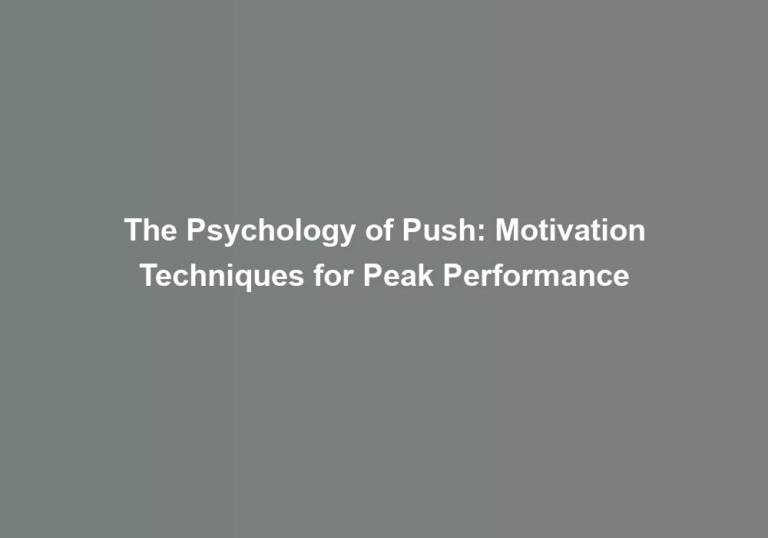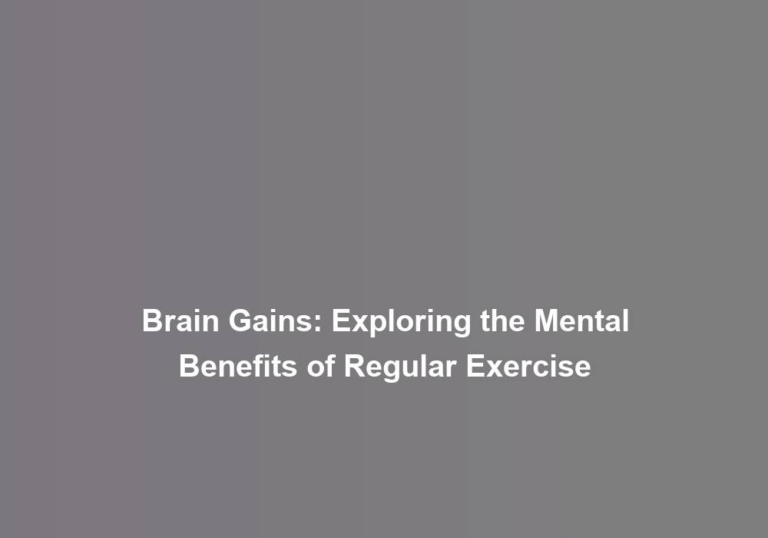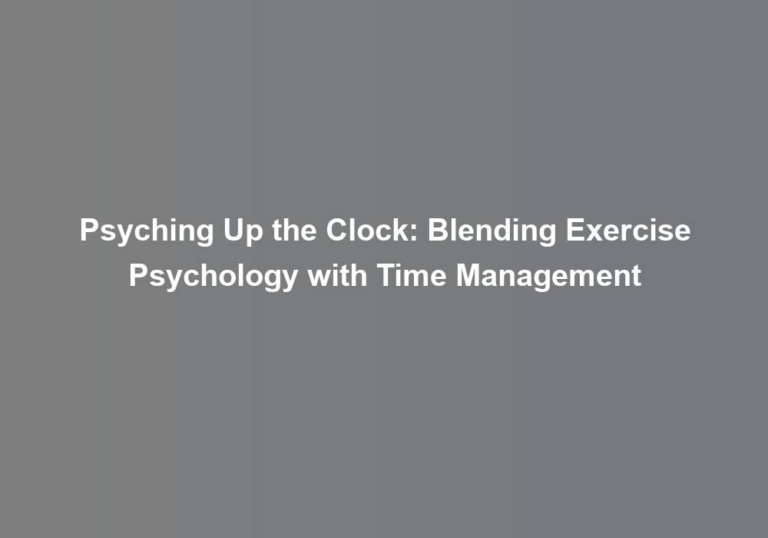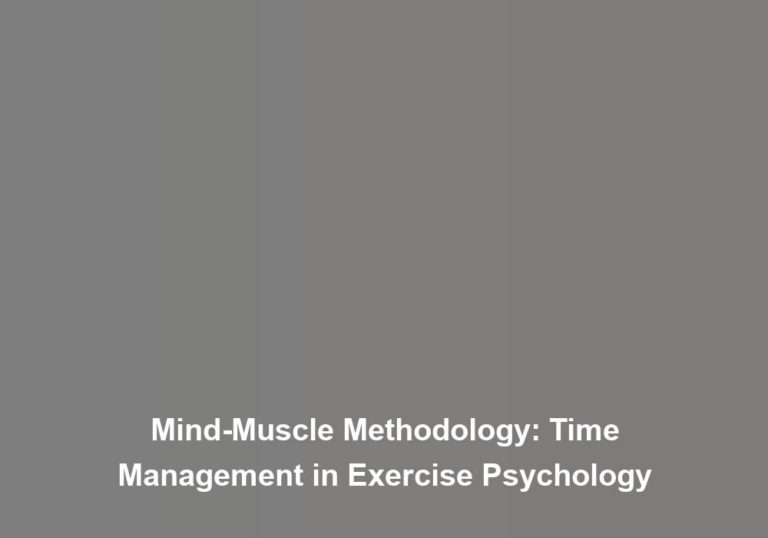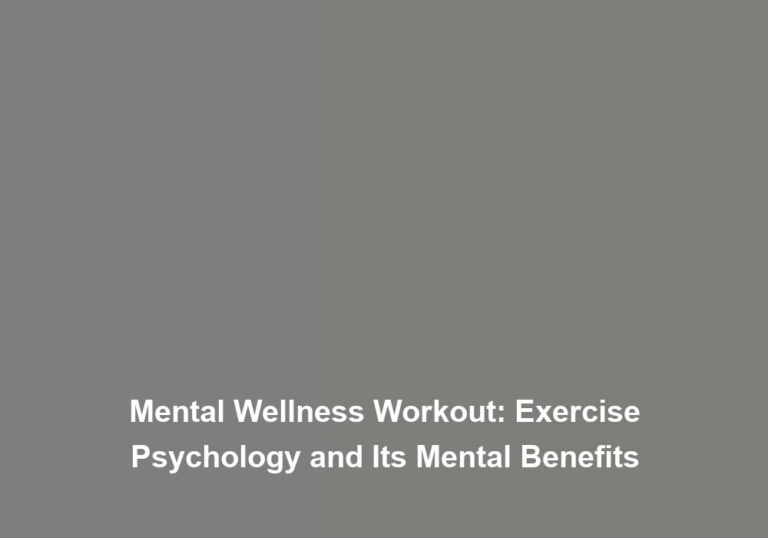Mind Over Muscle: The Psychological Perks of Staying Active
You might be thinking that staying active requires a significant time commitment and effort, especially with busy schedules and competing priorities. However, the psychological benefits of regular physical activity might just be the motivation you need to prioritize it in your daily routine. From reducing stress and enhancing your mood to improving cognitive function and managing anxiety, the mental perks of staying active are undeniable. But thereG??s more to it than just feeling goodG??staying active can also have a profound impact on your overall well-being.
Stress Reduction
To reduce stress, staying active is a proven method for improving mental well-being and overall quality of life. When you engage in physical activity, your body releases endorphins, which are natural mood lifters. These endorphins help to reduce stress, elevate your mood, and contribute to a sense of well-being. Through regular exercise, you can effectively manage stress and improve your emotional well-being.
When you are active, whether itG??s through walking, running, dancing, or any other form of physical activity, you are providing an outlet for the stress that may have built up throughout your day. This release of physical tension can help to alleviate mental and emotional strain as well. Additionally, physical activity can serve as a form of meditation in motion, allowing you to focus on the present moment and clear your mind of worries and stressors.
Moreover, staying active offers you an opportunity to engage with others who share similar interests, creating a sense of belonging and community. This social aspect of physical activity can further enhance your emotional well-being by providing a support system and fostering connections with others. Building these relationships can be a crucial part of stress management and overall mental wellness.
Enhanced Mood
Engaging in regular physical activity can significantly boost your mood and overall sense of well-being, providing a natural and effective way to uplift your spirits. When you incorporate exercise into your routine, youG??ll notice a remarkable improvement in your emotional regulation. Here are some ways that staying active enhances your mood and contributes to your happiness boost:
-
Endorphin Release: Exercise triggers the release of endorphins, often referred to as the bodyG??s natural feel-good chemicals. These endorphins interact with the receptors in your brain, reducing your perception of pain and triggering positive feelings.
-
Stress Reduction: Physical activity helps to lower the levels of stress hormones in your body, such as cortisol. As a result, youG??ll experience a calmer state of mind and an improved ability to cope with the challenges of daily life.
-
Increased Self-Confidence: Regular exercise can enhance your self-esteem and self-worth. Achieving your fitness goals, no matter how small, can boost your confidence and provide a sense of accomplishment.
-
Social Interaction: Engaging in group fitness activities or sports can provide a sense of belonging and social connection, which contributes to a more positive mood and overall well-being.
-
Improved Sleep: Regular physical activity can help you fall asleep faster and deepen your sleep. Quality sleep is essential for maintaining a positive outlook and managing stress effectively.
Cognitive Function
As you maintain an active lifestyle, not only will you experience enhanced mood, but you will also notice a significant improvement in your cognitive function. Regular physical activity has been shown to positively impact memory retention and problem-solving skills. When you engage in activities that get your heart pumping, you stimulate the release of chemicals that promote the growth of new brain cells and enhance overall brain performance. This means that as you continue to stay active, you are effectively boosting your ability to remember and process information, which can be incredibly beneficial in your personal and professional life.
Moreover, staying active also has a direct impact on your focus and attention span. By incorporating physical activity into your routine, you are training your brain to concentrate better. Research has shown that individuals who engage in regular physical activity have improved attentional control and the ability to shift between tasks more efficiently. This means that as you make physical activity a priority, you are not only improving your physical health but also honing your mental capabilities. You may find that you are better able to concentrate on tasks for longer periods and that you can switch between different tasks with greater ease.
Self-Esteem Boost
When youG??re active, youG??ll notice that your body image improves and you feel more confident. These are important aspects of self-esteem that can make a big difference in how you perceive yourself. LetG??s explore how staying active can lead to these positive changes in your self-esteem.
Improved Body Image
Exercising regularly can lead to an improved body image and a significant boost in self-esteem. This positive transformation can have a profound impact on your overall well-being and how you perceive yourself. Here are a few ways in which staying active can help improve your body image and self-esteem:
- Embracing body positivity and challenging unrealistic beauty standards promoted by the fashion industry.
- Feeling empowered and confident in your own skin, regardless of the ideals portrayed on social media.
- Developing a deeper appreciation for what your body can achieve, rather than solely focusing on appearance.
- Building a sense of pride and accomplishment through setting and achieving fitness goals.
- Surrounding yourself with a supportive community of like-minded individuals who value health and self-acceptance.
Increased Confidence
By engaging in regular physical activity, you can experience a noticeable boost in self-confidence and self-esteem. When you see improvement in your performance, whether itG??s running a little faster or lifting a little more, it can have a significant impact on how you perceive yourself. This personal empowerment can translate into other areas of your life, giving you the confidence to tackle challenges and try new things. As you achieve your fitness goals, youG??ll start to believe in your abilities and strengths, which can positively influence your self-image. This increased confidence can help you navigate social situations with greater ease and assertiveness, ultimately contributing to a greater sense of belonging and acceptance in your social circles.
Anxiety Management
Regular physical activity can help you effectively manage anxiety and improve your overall well-being. When you engage in regular exercise, it can have a positive impact on your mental health, specifically by reducing anxiety levels. Here are some ways in which staying active can help you manage anxiety:
-
Endorphin Release: Exercise triggers the release of endorphins, which are natural mood lifters. These chemicals can help reduce feelings of anxiety and stress, leaving you feeling more positive and relaxed.
-
Stress Reduction: Physical activity can act as a form of stress relief, helping to lower the overall levels of stress and tension that can contribute to feelings of anxiety.
-
Improved Sleep: Regular exercise can improve the quality of your sleep. Better sleep patterns can significantly reduce anxiety levels and enhance your overall well-being.
-
Distraction and Focus: Engaging in physical activity can provide a healthy distraction from anxious thoughts and help you to focus on the present moment, reducing feelings of worry.
-
Mindfulness Techniques: Many forms of exercise, such as yoga or tai chi, incorporate mindfulness techniques that can help you stay grounded and reduce anxiety levels through focused breathing and present-moment awareness.
Mental Clarity
Feeling mentally clear and focused can be a direct result of staying active and engaging in regular physical exercise. When you prioritize staying active, you can experience significant improvements in your ability to concentrate and stay on task. Exercise has been shown to enhance focus and memory, allowing you to tackle daily challenges with a sharper mind. Whether itG??s going for a brisk walk, hitting the gym, or practicing yoga, staying active can lead to noticeable improvements in your cognitive function.
In addition to focus improvement and memory enhancement, engaging in regular physical activity can also positively impact your emotional regulation and provide stress relief. Exercise stimulates the production of endorphins, the bodyG??s natural mood lifters, helping you manage stress and regulate your emotions more effectively. This can lead to a greater sense of mental clarity, allowing you to approach tasks and problem-solving with a calmer and more balanced mindset.
Conclusion
So, next time youG??re feeling stressed or down, lace up those sneakers and hit the pavement. Did you know that just 30 minutes of exercise can increase your endorphin levels, reducing stress and anxiety by up to 50%? ItG??s amazing what a little physical activity can do for your mental well-being. Keep moving, keep smiling, and keep reaping the psychological benefits of staying active.


